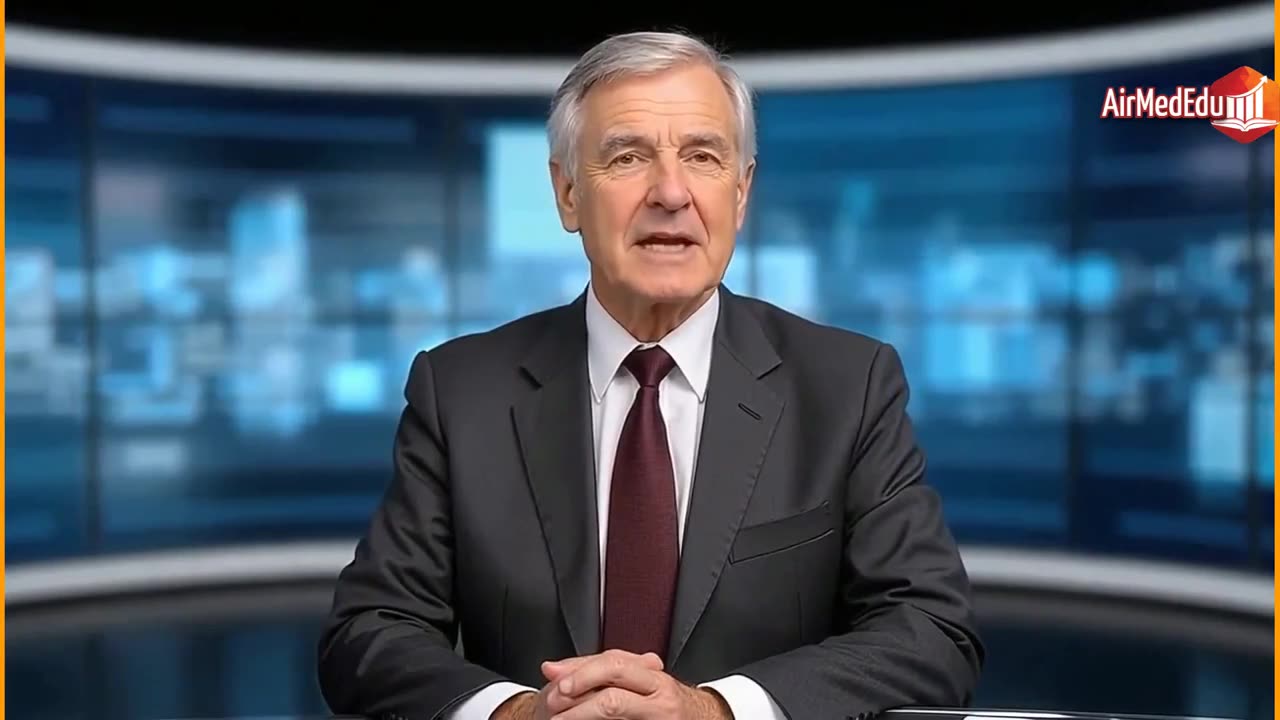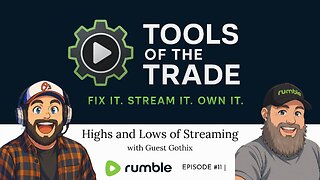Premium Only Content

How to overcome anxiety in everyday life
In a world that seems to spin ever faster, with constant demands from work, relationships, and daily responsibilities, anxiety has become an unwanted companion for millions of people. Imagine waking up every morning with a knot in your stomach, anticipating the worst in a routine meeting or a simple trip to the supermarket; this is the reality for many, and according to general estimates, it affects a significant portion of the adult population at some point in their lives. Anxiety is not just a passing feeling of nervousness, but a response of the body and mind to perceived stress, which can manifest itself in palpitations, racing thoughts, or a feeling of suffocation that interferes with the enjoyment of daily life. Overcoming this anxiety doesn't mean eliminating it completely—a little of it can be helpful in motivating us—but learning to manage it is key to regaining control and fostering a more balanced mental well-being. This article explores practical and empathetic ways to deal with anxiety in your daily life, inviting you to reflect on your own experience and implement changes that, step by step, can transform your routine into a space of greater calm and confidence.
Daily anxiety often arises from the accumulation of small worries that, like drops in a glass, end up overflowing. Think of someone like Ana, an office worker who faces city traffic every morning. For her, the simple act of driving becomes a whirlwind of "what ifs"—what if I'm late, what if I make a mistake at work, what if I don't meet expectations? This pattern of thinking, broadly known as rumination, is a cycle where the mind repeats negative scenarios without resolution, amplifying anxiety. From a broader psychological perspective, anxiety is rooted in the body's stress response system, an evolutionary legacy designed to protect us from real threats, such as a predator in ancient times. However, in modern life, these threats are more abstract: work deadlines, social interactions, or personal insecurities. Understanding this is the first step; by recognizing that anxiety is a signal, not a verdict, we can begin to disarm it. For example, instead of fighting it, which only intensifies it, it's about observing it with curiosity, asking ourselves what it's telling us about our unmet needs, such as more rest or clear boundaries at work.
A fundamental strategy for overcoming daily anxiety involves cultivating mindfulness, a practice that invites us to ground ourselves in the present rather than wandering into uncertain futures. Imagine being in a team meeting, where anxious thoughts about one's performance begin to invade the mind; at that moment, directing attention to one's breathing—inhaling deeply through the nose and exhaling through the mouth—can act as an anchor, reducing the intensity of the physical response. This technique, based on principles of mindfulness, doesn't require hours of meditation; It only takes a few minutes a day, perhaps during breakfast or before bed, to notice how the body relaxes and the mind clears. In the life of someone like Carlos, a university student overwhelmed by exams, incorporating mindful breaks transformed his days: instead of procrastinating out of fear of failure, he began to break his tasks down into manageable segments, celebrating each small step forward, which gradually eroded the wall of anxiety that separated him from his productivity. In this way, mindfulness not only mitigates immediate symptoms, such as a racing pulse or muscle tension, but also rewires long-term mental patterns, fostering resilience that makes everyday worries seem less overwhelming.
Another key aspect is the role of physical exercise in managing anxiety, as movement releases endorphins, natural chemicals that act as emotional painkillers and elevate mood. It's not about becoming an elite athlete; Even a 20-minute walk in the park can make a difference, oxygenating the brain and dissipating the mental fog that accompanies anxiety. Consider the case of Maria, a single mother who struggled with anxiety about balancing her career and parenting; by integrating simple routines like morning yoga or spontaneous dances in the kitchen with her children, she not only reduced her levels of cortisol—the stress hormone—but also created moments of connection that strengthened her emotional support network. From a general psychological perspective, exercise promotes a sense of accomplishment and control, counteracting the feeling of helplessness that often fuels anxiety.
Furthermore, combining it with gradual exposure to feared situations, such as public speaking for an introvert, builds confidence step by step: starting with short conversations over coffee and progressing to group presentations, always recognizing the courage in each attempt, transforms fear into an opportunity for growth.
Nutrition and sleep also play a pivotal role in this journey, as a malnourished or fatigued body is more likely to amplify anxiety signals. Think of how a nutrient-dense diet—fruits, vegetables, lean proteins, and whole grains—nourishes the brain, stabilizing mood through balanced levels of serotonin, a neurotransmitter associated with calm. Conversely, excessive caffeine or processed sugars can mimic anxiety symptoms, such as palpitations or restlessness. In the everyday scenario of someone like Javier, an entrepreneur who skipped meals and relied on coffee to stay alert, adjusting his intake to regular, balanced meals, along with a consistent sleep schedule—turning off screens an hour before bedtime—resulted in a noticeable reduction in his anxious episodes. General psychological concepts highlight how restful sleep allows for the processing of daytime emotions, preventing them from accumulating into a swirl of nighttime worries. Establishing pre-bedtime rituals, such as reading a book or practicing gratitude for three positive things from the day, not only induces rest but also reorients the mind toward the positive, eroding anxiety's hold on the daily routine. Interpersonal relationships offer another pillar of support, as sharing emotional burdens with trusted people can diffuse the intensity of anxiety. In a digitally connected but often emotionally isolated world, opening up about feelings of unease—without fear of judgment—fosters a sense of belonging that acts as a buffer.
Take the example of Laura, a freelance artist who felt overwhelmed by the uncertainty of her career; By joining an online support group where others shared similar experiences, she found validation and practical advice, such as visualization techniques to imagine successful rather than catastrophic scenarios. From a broader psychological lens, this aligns with the idea that anxiety thrives in isolation but weakens in connection; cultivating honest conversations with friends, family, or even a professional therapist isn't a sign of weakness, but a smart strategy for redistributing emotional weight. Furthermore, setting healthy boundaries—saying "no" to overcommitments—protects personal space, preventing anxiety from infiltrating all areas of life. Incorporating hobbies and pleasurable activities is essential for countering anxiety, as these moments of flow—where time seems to stop during an absorbing task—restore mental balance. Whether painting, cooking, or gardening, these practices allow for a temporary disconnect from worries, recharging emotional reserves. For someone like Pedro, an engineer who spent his days in a cycle of work-related stress, rediscovering his passion for music—playing guitar after work—not only provided a creative outlet but also improved his focus and reduced the frequency of intrusive thoughts. General psychologists emphasize how intentional pleasure activates reward circuits in the brain, competing with anxious patterns and fostering a more positive internal narrative. Integrating these elements into the daily agenda, even in brief intervals, transforms the routine from a source of anxiety into a canvas of opportunities for joy and self-realization.
As we explore these strategies, it's important to recognize that anxiety can vary in intensity, and for some, seeking professional help—such as cognitive behavioral therapy—is a valuable step that tailors these tools to individual needs. On a day-to-day basis, combining techniques such as thought restructuring—questioning the validity of irrational fears with contrary evidence—with self-care practices creates a personalized arsenal. For example, if anxiety arises on public transport, visualizing a safe place or using headphones with relaxing music can be an immediate lifesaver, while in the long term, journaling—writing about worries to process them—frees up mental space. Stories like Sofia's, who overcame her social anxiety by gradually attending small events and celebrating each interaction, illustrate how persistence and gentleness with yourself pave the way to emotional freedom.
In short, overcoming anxiety in your daily life is a gradual process of self-discovery and intentional action, where strategies such as mindfulness, exercise, balanced nutrition, meaningful connections, and enriching hobbies intertwine to weave a web of resilience. Remember that you are not alone on this journey; every small step, from a deep breath to an open conversation, is a victory that builds strength toward a more serene life. I invite you to start today: choose a technique that resonates with you, integrate it into your routine with patience, and watch how, over time, anxiety becomes a softer voice in the chorus of your existence. There is hope in personal empowerment, and by taking care of your mental health, you not only benefit yourself but inspire others to do the same, creating a world where wellness is accessible to all.
-
 18:03
18:03
stateofdaniel
1 day agoJen Psaki PANICS on Live TV, BACKPEDALS After Smearing Trump with Epstein—Fears LAWSUIT!
956 -
 18:31
18:31
Nikko Ortiz
22 hours agoKaren You Need A Shower...
22.5K18 -
 1:09:52
1:09:52
VapinGamers
2 hours ago $4.87 earnedTools of the Trade - EP11 Highs and Lows of Streaming with Gothix - !rumbot !music
10.7K2 -
 LIVE
LIVE
SOLTEKGG
4 hours agoARC RADIDERS "First Month-Anniversary on Rumble"
119 watching -
 2:14:09
2:14:09
LFA TV
21 hours agoRUMBLE RUNDOWN WEEK 6 with JEREMY HERRELL AND SHAWN FARASH 11.15.25 9AM
160K7 -
 1:44:16
1:44:16
HotZone
5 hours ago $3.70 earnedLive: The Hidden Crisis in US Special Ops: What They’re Not Telling You About Women in Combat
13K13 -
 53:25
53:25
Athlete & Artist Show
19 hours ago $1.38 earnedBombastic Bets & Games w/ Team Canada Veteran!
11.5K1 -
 53:13
53:13
X22 Report
4 hours agoMr & Mrs X - It All Revolves Around Marxism, Think Political Correctness, Midterms Are Safe - EP 16
74K19 -
 44:27
44:27
I_Came_With_Fire_Podcast
11 hours agoThe Right's Drift into Neo-Marxism & America's Populist Crossroads
12.7K7 -
 LIVE
LIVE
Amarok_X
4 hours ago🟢LIVE 24 HR STREAM? | ARC RAIDERS TO START | OPERATION 100 FOLLOWERS | USAF VET
37 watching